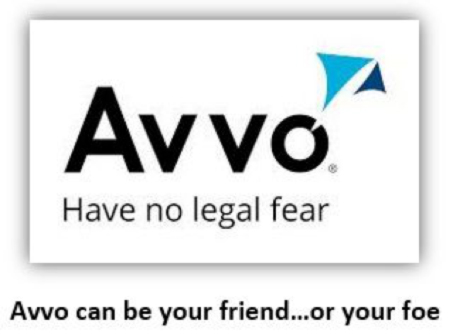By Jordan Bigda
If you follow legal marketing in the same way I do, you may have noticed that Avvo has found itself at the center of an ethics debate. Controversy is swirling from state to state questioning whether or not Avvo’s lawyer rating system is a violation of ABA Rule 7.2, which governs a lawyer’s ability (or inability) to pay for the recommendation of his or her services. In just the past few months, various legal blogs and publications have written articles with titles like, “Virginia Bar Takes Aim At Avvo, but Offers a Path Forwards for Other Third Party Platforms,” “Should Avvo’s Legal Services be Considered an Ethical Form of Fee Splitting?,” and “Avvo ‘marketing fee’ pays for an endorsement and violates New York lawyer ethics rules, opinion says.” Avvo has found itself in an ethical quandary, but why Avvo and not any other third party platforms like LegalZoom or Thumbtack?
Avvo was founded in 2007 and originally functioned as a website, which gave consumers general legal advice. But, as its popularity grew, Avvo morphed from a legal aid website to a legal marketing website. Avvo was founded in Seattle, Washington by Mark Britton who wanted “to make legal easier and help people find a lawyer.” Even the critics of Avvo recognize that it uses legitimate qualities when recommending an attorney such as years of practice, volunteer work, and publicly available information sourced on the attorney. In simple terms, Avvo is Yelp for lawyers. I say this because Avvo provides a free lawyer rating service into which lawyers can invest time and money. Like any modern marketing platform, however, the lawyers who invest more time and money into the platform have higher ratings and are in essence more highly recommended by a marketing platform that holds itself out as unbiased and neutral in the legal selection process.
State bar committees take issue with the fact that attorneys, regardless of skill level, who spend more time and money on their Avvo profiles are more likely to have a higher recommendation and receive more clients from Avvo. New York states that when Avvo “offers to find a client “the right” lawyer with a money-back guarantee, there is an implied recommendation as to the lawyer’s “credentials, abilities, competence, character, or other professional qualities,” and this, especially when the lawyer pays for additional advertising, violates ABA Rule 7.2 by making an improper payment for the recommendation of a lawyer’s services. New York is not alone in this belief and states across the nation are pushing back against Avvo. The problem seems to be more that the company holds itself out as independent, but then recommends the attorney who puts the most time and money into their profile than the lawyer who is most proficient in their particular legal problem.
However, LegalZoom has recently developed a lawyer referral service and has not drawn the same negative attention as Avvo. In the past year LegalZoom has been quietly building an “attorney directory” which lists and recommends lawyers based on practice area and information inputted by prospective clients. LegalZoom states that “[f]inding the right attorney can take hours of research. We’ve done the hard part for you by carefully selecting attorneys all over the country to be a part of our network. They’re knowledgeable, great to work with, and specialize in your state’s laws. Search our directory and see for yourself.” I think the reason LegalZoom has avoided the same publicity as Avvo is because their directory is still free for attorneys to sign up, and they are not collecting marketing revenue and therefore, lawyers are not yet paying for the recommendation of LegalZoom. The fee splitting aspect of Avvo is not yet present in LegalZoom’s model, and if LegalZoom can avoid fee splitting, maybe it can also avoid pushback from state bars on its ethical standing.
Student Bio: Jordan Bigda is a Content Editor on the Journal of High Technology Law and a current third year law student at Suffolk University Law School.

